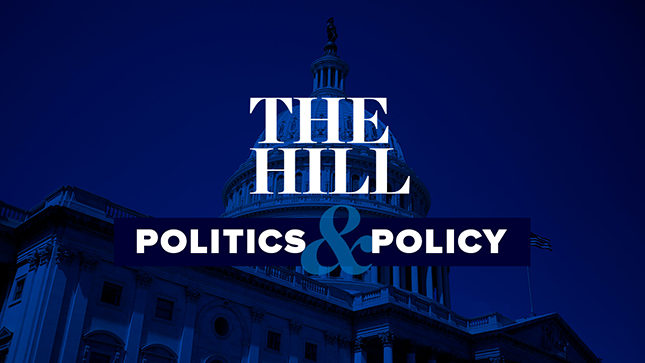As the midterm congressional elections unfold, candidates are also running in 36 states for governor and competing for more than 6,000 state legislative seats. How many of these state candidates do you think will say something good or bad about President Trump? Probably more than you can count. When they do, they will break an obscure federal law.
It’s yet another example of the crazy and complex federal campaign finance laws. Worse, it shows how the federal government has unconstitutionally inserted itself into state governance.
The Federal Election Commission recently released two enforcement matters concerning the federal gag on state candidates. In one matter, Washington State Gov. Jay Inslee’s 2016 reelection campaign ran a TV ad tying his Republican opponent to Trump. The ad concluded, “Bill Bryant and Donald Trump, Wrong for Washington [State].” Hillary Clinton and Inslee went on to clobber their opponents in that state. Going in the opposite direction, gubernatorial candidate Eric Greitens sent a mailer urging Missouri voters to turn out for Trump and Greitens. Trump went on to win a conversely large margin in that state, while Greitens won by a narrower margin.
The Inslee and Greitens ads seem rather typical for political campaigns, but they were actually outlawed by Congress in 2002 as part of the Bipartisan Campaign Reform Act (BCRA). Among other things, that law prohibits state candidates from sponsoring any ad that “promotes or supports” or “attacks or opposes” a federal candidate unless they use so-called “federal funds.” “Federal funds,” in turn mean donations within the federal contribution limits, source prohibitions, and reporting requirements.
The vast majority of states have contribution limits for gubernatorial candidates that are higher than the federal limits, or have no limits at all. Twenty states also permit contributions beyond the federal limits for state legislative candidates. Corporate contributions, which are prohibited under federal law, also are permitted in a majority of states. State and local candidates also file their campaign finance reports with state and local authorities, and therefore do not comply with the federal reporting requirements. In short, all or virtually all state and local candidates run using non-federal funds, and therefore are prohibited by BCRA from discussing federal elected officials in their campaign ads.
BCRA’s gag rule on state and local candidates was a dumb idea when passed. Now, it’s likely unconstitutional as well. In 2003, the Supreme Court upheld the law based on a “prediction … that state and local candidates and officeholders will become the next conduits for the soft-money funding” of federal campaign ads. At the time, BCRA had banned non-federal funds (a.k.a. “soft money”) from being used to pay for any campaign ads regarding federal candidates.
In other words, the Supreme Court upheld this provision based on a mere conjecture, and a far-fetched one at that. After all, how many state candidates would allow their own campaign funds to be used to campaign for another candidate running for federal office? To the extent state candidates like Inslee and Greitens invoke the names of federal candidates, they’re trying to win their own races. That’s the well-known “coattails effect.”
The Supreme Court’s 2010 Citizens United decision shredded the rationale for this gag law. Today, contribution limits no longer apply to independent speech by advocacy groups and super PACs about federal races. Therefore, there isn’t any reason for donors seeking to influence federal races to use state candidates as “conduits” to evade the federal contribution limits — not that this had ever been likely.
So now state candidates find themselves in a tough spot. If they want to attack or praise Trump, who has declared he is a candidate in 2020, they will be violating federal campaign finance laws. While state candidates must keep their mouths shut, independent groups may support or oppose federal candidates as much as they want.
When Congress passed BCRA, critics complained that it federalized state election activities. They were right. Indeed, 16 years later, state and local party committees struggle under the law’s burdens, even as the Supreme Court tossed out the law’s other key provisions. As the 2018 elections unfold, many state and local candidates also will unwittingly run afoul of the federal law, and pressure will mount for a constitutional challenge.
This post originally ran in The Hill on March 26th 2018.














